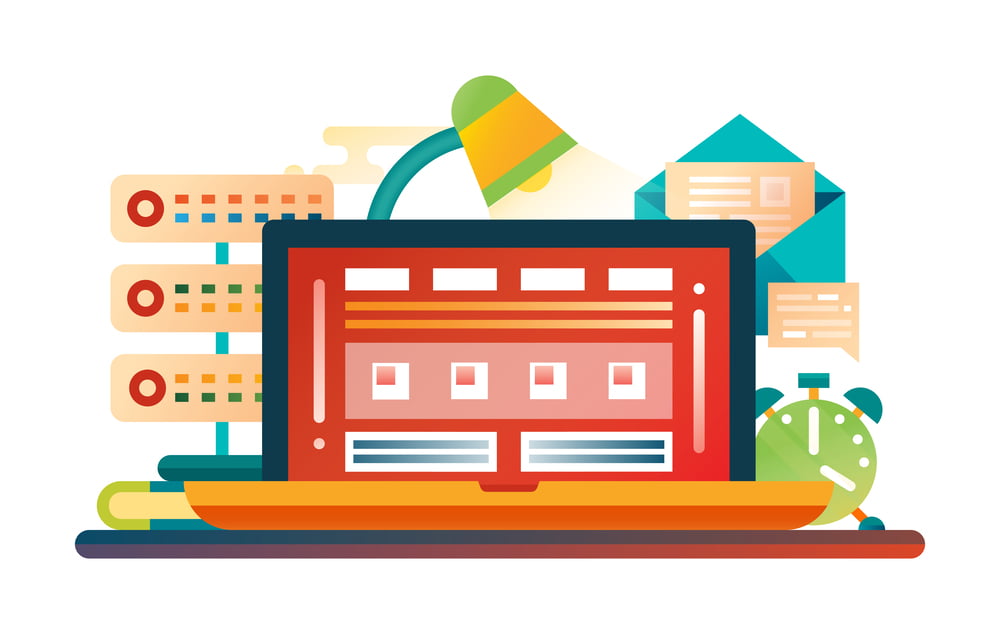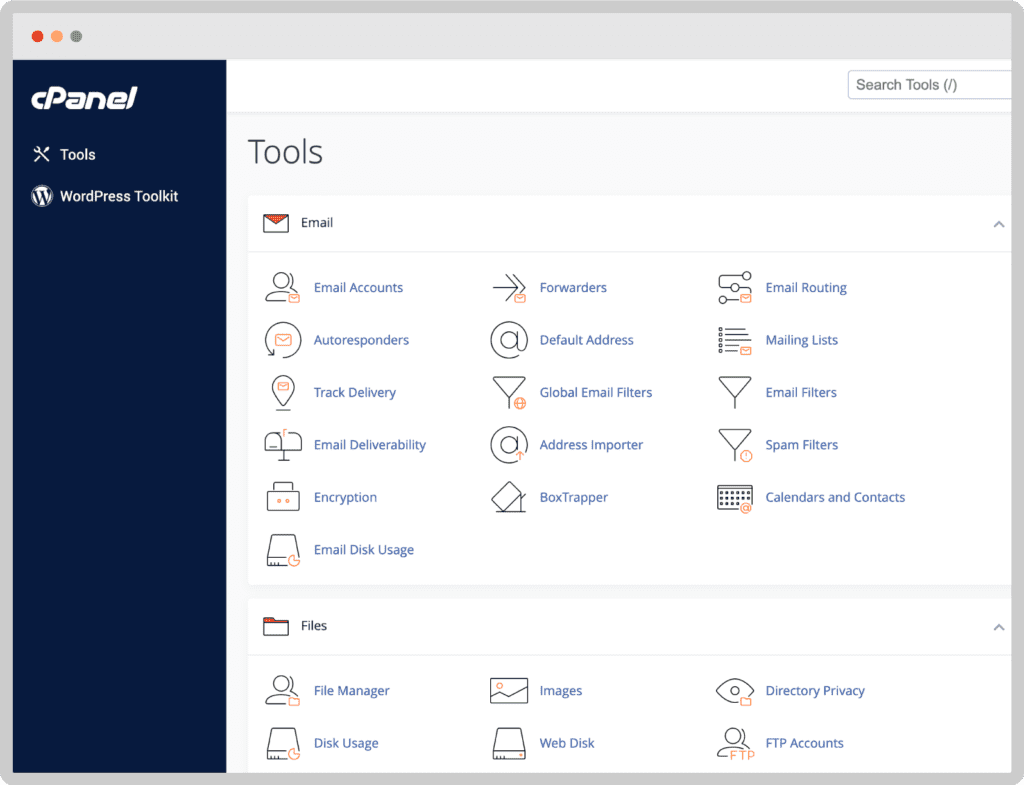
The Ultimate Guide to cPanel Hosting
In today’s digital world, having a website is essential for businesses and individuals alike. Whether you’re an entrepreneur, a blogger, or a creative professional, your website is your online home, where you showcase your work and connect with your audience.
To make the most of your online presence, you need a reliable, easy-to-use hosting solution that helps you manage your website effectively. That’s where cPanel hosting comes in.
cPanel is a widely popular web hosting control panel that simplifies website management tasks, enabling you to focus on what truly matters: your content and your audience.
In this ultimate guide, we will explore what cPanel is, its features, and benefits, and how to choose the best cPanel hosting provider for your needs. We’ll also share essential tips on maximizing your website’s potential with cPanel.
Whether you’re a seasoned webmaster or a complete beginner, this guide will help you navigate the world of cPanel hosting and make the most of your website. Let’s dive in!

What is cPanel and its features?
cPanel is a Linux-based web hosting control panel that provides a graphical user interface and automation tools to simplify the process of hosting a website.
It’s designed to make web hosting management tasks as easy as possible, allowing users to manage their domains, email accounts, databases, and other website-related aspects with just a few clicks.
Some of the key features of cPanel include:
- File management: cPanel allows you to easily upload, download, edit, and manage your website files using the built-in File Manager. You can also create and manage FTP accounts to transfer files between your computer and your hosting account.
- Domain management: With cPanel, you can add, remove, and manage domains, subdomains, and domain aliases. You can also create and manage DNS records and set up domain redirects.
- Email management: cPanel enables you to create and manage email accounts, set up email forwarding, and configure autoresponders. You can also use the built-in Webmail interface to access your email from any browser.
- Database management: cPanel makes it easy to create and manage MySQL and PostgreSQL databases, as well as manage database users and permissions.
- Security: cPanel provides several security tools to help protect your website, including password-protected directories, IP address blocking, SSL/TLS management, and more.
- Website analytics: cPanel offers various analytics tools to help you track your website’s performance and visitor statistics, such as AWStats, Webalizer, and Logaholic.
These are just a few examples of the many features available in cPanel. As you can see, cPanel is packed with tools that make website management a breeze.

Read also: 15 Must-Have WordPress Plugins to Improve Your Website
Benefits of using cPanel hosting for your website
There are several reasons why cPanel has become the go-to hosting control panel for many website owners. Here are some of the key benefits of using cPanel hosting for your website:
- User-friendly interface: cPanel’s intuitive, graphical user interface makes it easy for anyone to manage their website, regardless of their technical expertise. Even if you’re new to web hosting, you’ll find cPanel’s interface easy to navigate and understand.
- Wide compatibility: cPanel is compatible with most web hosting environments, making it easy to switch hosting providers or migrate your website without any hassle.
- Extensibility: cPanel supports a vast array of plugins and add-ons that can enhance its functionality and help you customize your hosting experience to suit your specific needs.
- Frequent updates and improvements: cPanel is regularly updated with new features, bug fixes, and security enhancements, ensuring that your hosting environment stays up-to-date and secure.
- Large community and support resources: cPanel has a large user community and extensive support resources, including documentation, forums, and video tutorials. This makes it easy to find answers to your questions and get assistance when needed.
These benefits make cPanel hosting an excellent choice for managing your website, regardless of its size or complexity.

Understanding cPanel hosting plans and pricing
cPanel hosting plans can vary greatly in terms of features and pricing, depending on the provider and the specific needs of your website. Here are some factors to consider when evaluating cPanel hosting plans:
- Storage and bandwidth: Ensure the hosting plan offers enough storage space and monthly bandwidth to accommodate your website’s needs.
- Domain and email management: Check the number of domains, subdomains, and email accounts you can create and manage with the hosting plan.
- Database support: Verify the hosting plan’s support for MySQL and PostgreSQL databases, as well as the number of databases you can create.
- Security features: Look for essential security features, such as SSL/TLS support, IP blocking, and password-protected directories.
- Backup and restore options: Ensure the hosting plan includes regular backups and easy-to-use restore options to protect your website’s data.
- Support and customer service: Look for hosting providers with a strong reputation for customer support, including 24/7 availability and multiple contact options (e.g., phone, email, chat).
When it comes to pricing, cPanel hosting plans can range from as low as a few dollars per month for shared hosting to hundreds of dollars per month for dedicated or managed hosting options. Keep in mind that the cheapest hosting plan may not always be the best choice, as it may lack essential features or offer subpar performance. It’s crucial to strike a balance between affordability and quality to ensure the best possible hosting experience for your website.

How to choose the best cPanel hosting provider
With so many cPanel hosting providers available, it can be challenging to know which one is the best fit for your needs. Here are some tips to help you choose the best cPanel hosting provider:
- Research and compare: Start by researching multiple cPanel hosting providers and comparing their features, pricing, and customer reviews. This will give you a better idea of what each provider offers and help you identify the most suitable option for your website.
- Consider your website’s needs: Think about your website’s specific requirements, such as storage space, bandwidth, database support, and security features. This will help you narrow down your options and choose a hosting plan that meets your needs.
- Check for compatibility: Make sure the cPanel hosting provider supports the software and applications you plan to use on your website, such as content management systems (e.g., WordPress, Joomla), e-commerce platforms (e.g., WooCommerce, Magento), and other essential tools.
- Look for scalability: Choose a cPanel hosting provider that offers scalable hosting plans, allowing you to upgrade or downgrade your hosting resources as your website grows or your needs change.
- Test customer support: Test the hosting provider’s customer support by contacting them with questions or concerns. This will give you a sense of their responsiveness and professionalism, which are crucial factors to consider when entrusting your website to a hosting provider.
By carefully evaluating your options and considering these factors, you can find the best cPanel hosting provider to help you maximize your website’s potential.

Read also: 10 Best WordPress Hosting in 2022
Cheapest and best cPanel hosting options
There are numerous cPanel hosting providers available, each offering different features, pricing, and overall quality. To help you make an informed decision, here are some of the cheapest and best cPanel hosting options to consider:
- Arahoster: Arahoster Offers The Best Web Hosting Services With SSD Drives, Domain Names, And SSL Certificates At Very Competitive Prices. cPanel hosting Starts as low as $11.99 per year.
- HostGator: HostGator is a popular cPanel hosting provider known for its affordable shared hosting plans, starting as low as $33 per year. HostGator offers a user-friendly cPanel interface, a wide range of features, and reliable performance, making it an excellent option for budget-conscious website owners.
- Bluehost: Bluehost is another well-known cPanel hosting provider, offering shared hosting plans starting at $47 per year. Known for its excellent performance and customer support, Bluehost also offers a custom cPanel interface and a variety of features to help you manage your website effectively.
- SiteGround: SiteGround is a highly regarded cPanel hosting provider, with shared hosting plans starting at $83 per year. SiteGround stands out for its top-notch performance, security features, and customer support, making it a great choice for website owners seeking a reliable cPanel hosting solution.
- A2 Hosting: A2 Hosting is a popular cPanel hosting provider offering shared hosting plans starting at $35 per year. A2 Hosting is known for its fast performance and excellent customer support, making it a strong contender in the cPanel hosting market.
While these are just a few examples of the cheapest and best cPanel hosting options available, it’s essential to research and compares multiple providers to find the perfect fit for your needs.

Once you’ve chosen a cPanel hosting provider and set up your hosting account, you’ll need to familiarize yourself with the cPanel interface and its various tools. Here’s a quick overview of the main sections and tools you’ll find in the cPanel interface:
- Home: The cPanel Home screen displays essential information about your hosting account, such as your domain, IP address, and storage usage. It also provides quick access to commonly used tools and features.
- Files: The Files section contains tools for managing your website’s files, including the File Manager, FTP accounts, and backup options.
- Databases: The Databases section provides tools for creating, managing, and backing up MySQL and PostgreSQL databases.
- Domains: The Domains section allows you to manage your domains, subdomains, and DNS settings.
- Email: The Email section includes tools for creating and managing email accounts, configuring email forwarding, and setting up autoresponders.
- Metrics: The Metrics section offers various analytics tools to help you monitor your website’s performance and visitor statistics.
- Security: The Security section provides tools for securing your website, such as IP blocking, password-protected directories, and SSL/TLS management.
As you explore the cPanel interface, you’ll discover many other tools and features designed to help you manage your website with ease. Don’t be afraid to experiment with these tools and learn how they can help you maximize your website’s potential.

Essential cPanel functions for website management
Now that we’ve covered the basics of cPanel and its interface, let’s dive into some essential cPanel functions for website management:
- Creating backups: Backing up your website regularly is essential to protect your data in case of a security breach or server failure. cPanel provides built-in backup tools that allow you to create full or partial backups of your website and download them to your computer or store them on the server.
- Managing email accounts: Email is an essential communication tool for most websites, and cPanel makes it easy to create and manage email accounts, set up email forwarding, and configure autoresponders. You can also use the Webmail interface to access your email from any browser.
- Installing software: cPanel offers various software installation tools, such as Softaculous and Installatron, that allow you to install popular applications and content management systems (CMS) with just a few clicks. This makes it easy to set up a website quickly and efficiently.
- Managing domains: With cPanel, you can easily add, remove, and manage domains, subdomains, and domain aliases. You can also create and manage DNS records and set up domain redirects.
- Managing databases: cPanel makes it easy to create and manage MySQL and PostgreSQL databases, as well as manage database users and permissions. You can also use phpMyAdmin or phpPgAdmin to manage your databases directly from the cPanel interface.
- Managing files: The File Manager tool in cPanel allows you to upload, download, edit, and manage your website files with ease. You can also create and manage FTP accounts to transfer files between your computer and your hosting account.
By mastering these essential cPanel functions, you can take full advantage of cPanel’s capabilities and manage your website like a pro.

Tips for maximizing your website’s potential with cPanel
To truly maximize your website’s potential with cPanel, here are some additional tips to keep in mind:
- Stay organized: Keep your website files, emails, and databases organized and properly labeled to make it easy to find and manage them in cPanel.
- Regularly update software: Keep your website’s software and applications up-to-date to ensure optimal performance, security, and compatibility with cPanel.
- Use caching: Caching can significantly improve your website’s speed and performance by storing frequently accessed data in memory. cPanel offers various caching options, such as Memcached and APC, that you can enable to speed up your website.
- Optimize images: Large image files can slow down your website’s loading time. Use cPanel’s image optimization tools or a third-party plugin to optimize your images for the web and reduce their file size.
- Monitor your website’s performance: Use cPanel’s analytics tools or a third-party tool like Google Analytics to track your website’s performance, identify issues, and make data-driven improvements.
By following these tips, you can leverage cPanel’s tools and features to make your website faster, more secure, and more user-friendly.

Conclusion: Making the Most of cPanel hosting solutions
In conclusion, cPanel is a powerful and user-friendly web hosting control panel that simplifies website management tasks and enables website owners to focus on their content and audience.
By understanding what cPanel is, its features, and benefits, and how to choose the best cPanel hosting provider, you can leverage cPanel’s capabilities to manage your website like a pro.
Remember to explore the cPanel interface and its various tools, master essential cPanel functions for website management, and follow our tips for maximizing your website’s potential with cPanel. With the right approach, you can make your website faster, more secure, and more successful than ever before.
If you’re ready to take your website to the next level with cPanel hosting, contact us today to learn more about our affordable and reliable hosting solutions.




